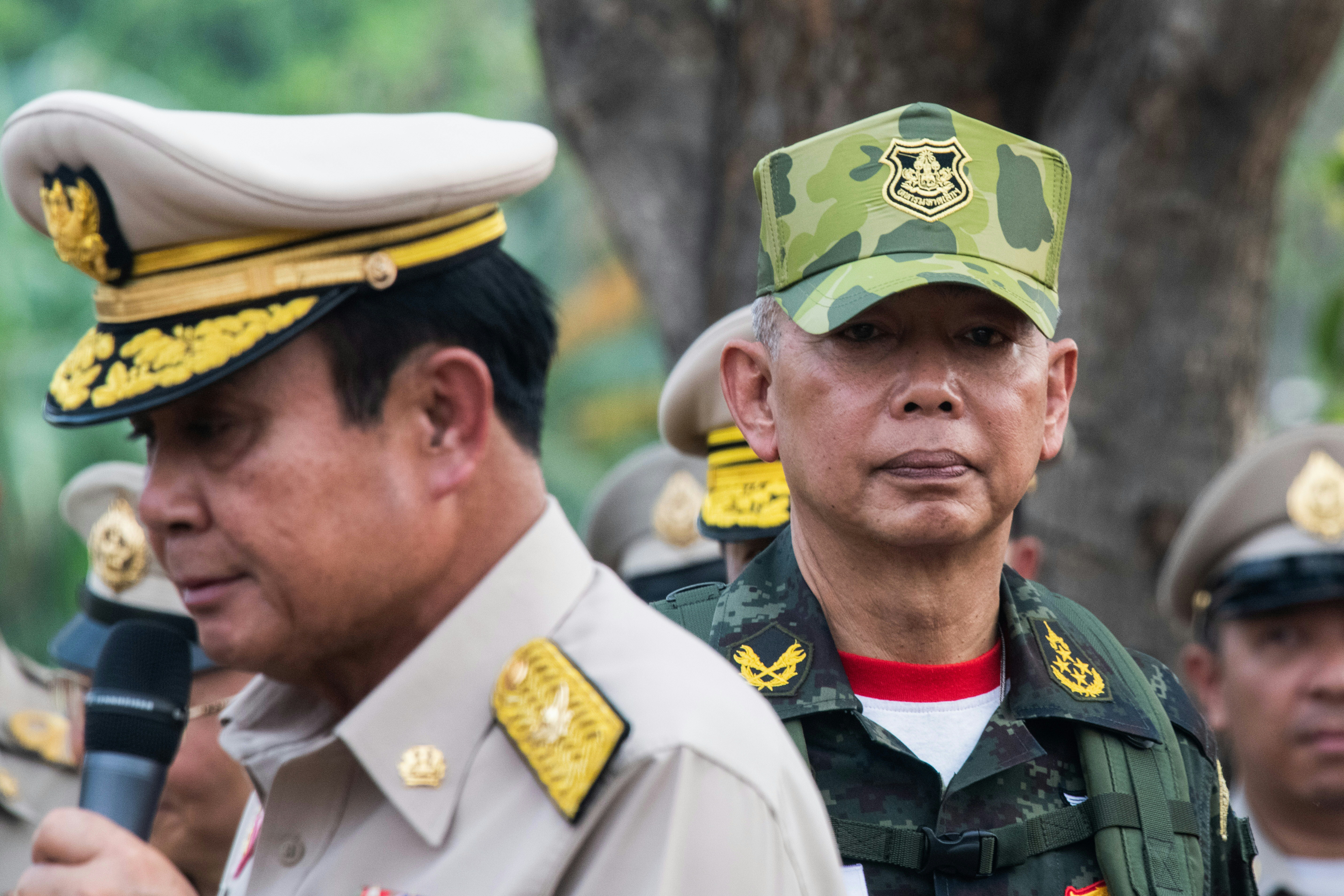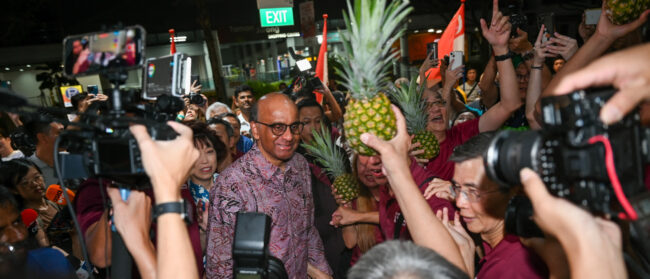Editor’s note: Thirteen years ago this week, Thailand’s democratically elected Prime Minister Thaksin Shinawatra was thrown out of office in a military coup. More than a decade – and another coup – on, a new King is presiding over a civilian government led by General Prayuth Chan-ocha. Southeast Asia Globe spoke to exiled Thai academic Pavin Chachavalpongpun about the coup’s lasting legacy in Thai politics – and why Prayuth should still be looking over his shoulder.
This is the first part of our interview series marking the anniversary of Thaksin’s fall. You can read the second part here.
Just to start off taking a step back in history 13 years ago to that time in 2006, obviously the overthrow of Thaksin by the military must have been quite a formative period for a lot of more politically active Thai people. Could you reflect on your own immediate reaction when you realised that the military had stepped in to take control of the country?
Well, I must say that by 2006 Thaksin clearly had become quite a divisive figure. Either you supported him, or perhaps you hated him. For intellectuals, for political activists, we were not really fond of him, simply because we felt that we were let down by the Thaksin administration that had been in power for six years. He had really rode in on the wave of democratisation in Thailand a decade earlier. But what he delivered actually was a lot of disappointments. Even though there was a lot of things ongoing under his administration too, for example the power of the electorates, the opening up of political space for a fairer contest and also the empowerment of people in the rural area, but there were a lot of mistakes that he had done as well, as we know – such as corruption.
Thaksin threatened the entirety of the royal political network, that nobody had ever challenged
So I think that by 2006 with the military coup there were mixed feelings, believe it or not, on my part. I thought that maybe Thaksin needed to be given a lesson. But I still rejected the way that he was overthrown, obviously, in the military coup. It wasn’t until later that I realised that the problem wasn’t only with Thaksin – the problem is in fact with the entire political system in Thailand, and in particular maybe we need to look at the role of the establishment of the traditional elite instead of just pointing the finger at Thaksin alone.
You said that there were quite a few people ready to see Thaksin fall, or as you say taught a lesson. Do you think that people understood just what kind of age of militarisation of Thai politics that his overthrow would usher in over the next ten years?
Yeah, I don’t think they understood the political context properly back then. I think that for a lot of people in 2006, that coup was just another coup. Unfortunately for a lot of people in Thailand, they think that military coups are a part of political culture. That we can’t get rid of it – that it’s become a part of our modus operandi. Just when you think that no one else can make a breakthrough when we encounter political crises, maybe the military might be able to do so. In fact you could see the Bangkok middle class in particular was very happy with the way that Thaksin was overthrown.
But as you know, 2006 would lead to 2014. Which for myself, definitely these were not just any other coups. I think Thaksin threatened the entirety of the royal political network, that nobody had ever challenged. So that was when I realised that 2006 and 2014 were very significant military coups – that Thailand had ever seen I think since 1932.
You’ve written in the past that while the 2006 was intended to break Thaksin’s threat to the monarchy, the 2014 coup was intended to safeguard that succession which was looking increasingly pressing. Since then we’ve seen King Vajiralongkorn not only step into his father’s shoes but also take a lot more of a political approach to the monarchy than people anticipated. Do you see this hyper-involvement of the new monarch in politics as a legacy of the military’s decision to step in and raise the monarchy up instead of allowing a broader base of political involvement?
Sure, definitely. I still stick to what I said to the media about the significance of the 2014 coup. For me it was more than just to get rid of the Shinawatra family – more importantly, it was about ensuring that the royal succession went smoothly, as well as an opportunity for the new king to forge a new alliance with the military. Not only did the succession go smoothly, it also paved the way for the monarch to consolidate his position. I think this has been a trend now, to see an active monarch who would be willing to manipulate or belittle the electoral process – for him to give his blessing for the writing of the constitution, for him to totally endorse Prayuth for the second term, for him to interfere in the constitutional revision – and even taking control of the Crown Property Bureau. In short, we’ll see the role of the king overpowering the political process more and more.
Since the election we’ve seen this dream-come-true for the military – the military-backed party under the guise of civilian rule. Looking at the six months since the election, have you been surprised at how turbulent those first six months have been in terms of Prayuth Chan-ocha securing his grip on power through these democratic processes?
I have seen it, but what I’ll say next might not sound very academic – it’s just based on common sense. Are we Thais really surprised by the poor performance of Prayuth in the first six months? No. Because this is the same Prayuth that we’ve seen in the past five years. So I don’t think there is anything that would shock us.
If Prayuth continues to further damage the government, it will eventually start to damage the monarchy
What’s next would be that Prayuth becomes tolerable to us – he could be here for some time. But what’s important is that if we believe in the manipulation of the royal institution over the political process, then it depends on how the new king would see the performance of this government. I think right now, the king might still be okay – that’s why Prayuth is still in place. But I don’t know – if Prayuth continues to further damage the government, it will eventually start to damage the monarchy. Because the monarchy has supported the military. So there could be a kind of reshuffle – including a change of the prime minister. He could be handpicked again. This is nothing new to the Thai political culture, because in the past Bhumibol had picked his own prime minister.
But it would be directly related to the new relationship between the military and monarchy. What I’m trying to say is that you will see more and more of a relationship between Vajiralongkorn and the King’s Guard, instead of the Queen’s Guard. Prayuth is from the Queen’s Guard. Now he’s the prime minister, so he still holds on to this executive power together with the backing of the Queen’s Guard. But I think the king is slowly trying to insert his power through the King’s Guard – through the army machine, through [armed forces chief and King’s Guard] Apirat [Kongsompong].
This is something we should look at in the future – the dynamic between the King’s Guard and the king vis-a-vis the Queen’s Guard. Whether this kind of a dynamic would be amicable at the end, that the Queen’s Guard would willingly disappear quietly, letting the King’s Guard take over everything, or whether it could turn out to be a kind of conflict. That will definitely, definitely cause an impact on the position of the monarchy.
What I’m trying to say is that I think the king is only okay right now with the Prayuth government. Should he feel not happy with the performance, then he would use his men in the army, the King’s Guard, to come and deal with the situation. And perhaps we might even see a new prime minister – perhaps even Apirat.
So you think we could see Apirat stepping in as prime minister rather than just overseeing that process?
It’s possible – highly possible… Since you’re going to write about the coup, I think if we look ahead at whether there’s going to be another coup, that might be a valid question. I don’t think so though. The political elite are sitting so comfortably on the infrastructure that they’ve created. Because of that, I don’t think there’d be Prayuth’s coup anytime soon. And should there be any coup, it would be the first coup under the new reign. Again, I’m not so sure how the king would think about the new coup – maybe he’d want to use any other method to control politics rather than a coup.


